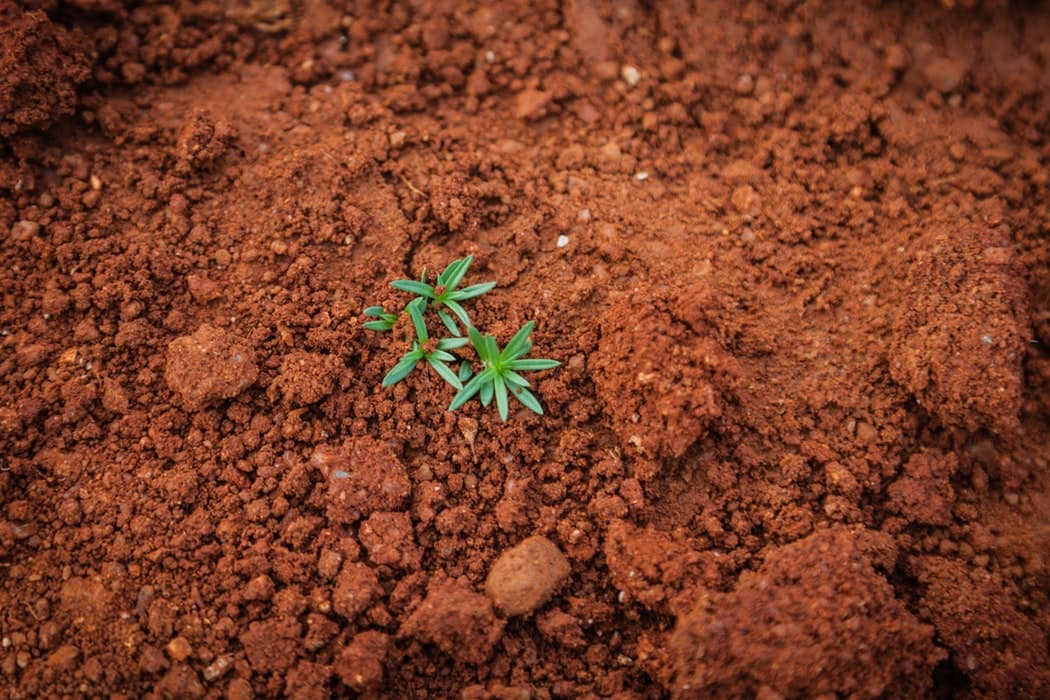Contaminated Soils: 3 Reasons to Soil Test
By Karine Dutemple
Updated on September 6, 2024

Whether it be chemicals, heavy metals or organic matter, the presence of contaminants in soil is rarely good news. However, ignoring the problem can have serious consequences. The question then is: why should you have a soil test carried out?
Soil Testing: 3 Reasons Why

1) To confirm or dispel the presence of contaminants
Basically, a soil study confirms or disproves the presence of contaminants in the soil and identifies its nature. Generally, the pollutants that are identified are:
chemicals (such as pesticides);
organic matter;
heavy metals;
hydrocarbons.
For example, the main contaminants found in residential areas include coal deposits, fuel oil, fire ash, industrial embankments and waste materials. Unfortunately, their presence is a reflection of another era, when the regulations governing the management of their residues were not very strict. In some cases, faulty equipment or an accidental spill may also be implicated.
Of course, confirming the presence of contaminants in the soil allows the process of decontaminating and rehabilitating the land as quickly as possible. Doing so tends to limit the impact of contaminants on the environment and avoid long-term damage.
While this does not call into question the importance of having a soil analysis done, some Canadian provinces have their own directory of contaminated land.
In Quebec, the Ministry of Environment and the Fight against Climate Change makes available to the public information brought to its attention concerning contaminated land on its territory. To access it, click here.
In Ontario, you can find documentation about contaminated lands and brownfields here.
In Nova Scotia, there is a special section on the government's website here.
Alberta has the Environmental site assessment repository here.
2) To get a mortgage

Thinking of building your future home? To be able to make this large-scale project a reality, you will first need to determine its location and therefore identify a land lot of sufficient size to meet your acreage needs. However, keep in mind that many other factors need to be considered before making a definitive decision on a particular field.
Among these is a very important element: the presence of healthy soil. Not only is its presence essential to ensure the sustainability of the building that will be built on the ground, but it is also a legal obligation.
Indeed, your financial institution may ask for irrefutable proof that your land is not contaminated before you can be granted a mortgage. In this regard, it should be noted that even in the context of a sale without a legal guarantee, an environmental assessment may be required to eliminate the possibility that contaminants may be present in the soil.
Moreover, this precaution ensures the viability of the investment and avoids the financial problems that could arise from construction on contaminated land. It should be noted that the test that is required will be phase 1, which is the one used to identify potential or actual risks relating to the presence of contaminants. Finally, it should be noted that the test is valid for 5 years. Therefore, if such an assessment was done less than five years ago, it is still valid.
3) To avoid buying a home on contaminated land
As we mentioned in the previous point, conducting a soil test can be an obligation that you will have to pay if you want to buy land. Thereby, this requirement will also apply to a property already built.
In this context, it should be noted that buying a house without regard for soil conditions can cause a very large number of problems if one or more contaminants are found in the soil. This will result in a long-running battle between buyers and sellers to avoid having to pay the costs required for soil decontamination.
Buyers will then have to prove that there is a hidden defect and the sellers will have to prove the opposite. Besides, the steps required by insurers to obtain compensation can be tedious and not always conclusive.
Once again, you should not believe that selling without a legal guarantee will protect you from lawsuits. Indeed, a prosecution motivated by the discovery of what could be considered in court as a hidden defect cannot be ruled out.
It is therefore intended to avoid all the problems caused by the presence of contaminated soil that a soil test must be carried out. After all, as the saying goes: better safe than sorry!
Looking for something else?
Related articles
The latest industry news, interviews, technologies, and resources.

Editorial Team
•08 Nov 2023
The lighting within a home is one of the most important and noteworthy features, as it determines how a space is divided, highlighted and conquered. There are plenty of options on the market for providing the right light for a space, from moveable lamps to bulbs fully embedded into the walls of the home. Options are endlessly creative to suit the need of all homes.

Editorial Team
•08 Nov 2023
With so many rooms in a home and plenty of decor choices to take care of, the entryway is one area that’s sure to be overlooked time and time again. It’s only natural to underestimate this space, but it’s important to remember that this is the first area of the home guests will encounter as well as the one which will greet you at the end of a long day.

Editorial Team
•31 Mar 2025
Are you a homeowner with an oil-fueled heating system? Note that replacing this type of heating system comes highly recommended. If it’s money that’s standing in your way, rest assured, there are financial assistance programs designed to help you achieve your goal.

Editorial Team
•15 Dec 2023
The construction industry is witnessing an onset of new materials, and it’s much more than an evolution, it’s a revolution. Considering that the industry ranks as one of the leading global sources of CO2 emissions, it’s a definite turning point.

Editorial Team
•23 Jun 2025
If you have a large yard, and therefore, perform a significant amount of yard maintenance, chances are you know a thing or two about dragging electrical wires along your lawn. Now, did you know that outlets can be mounted on soil-planted posts and wires can be buried beneath your feet? You can save yourself the hassle and frustration of pulling cords across the grass by running power underground!